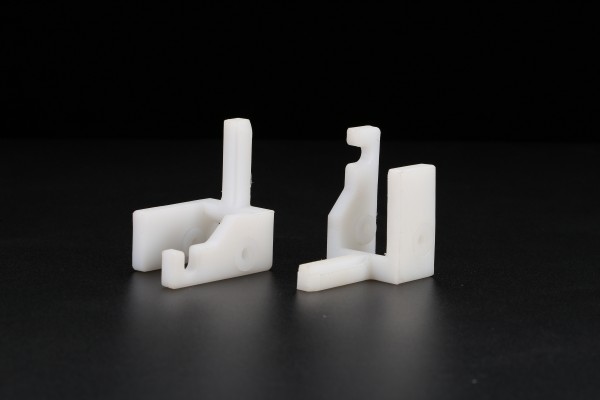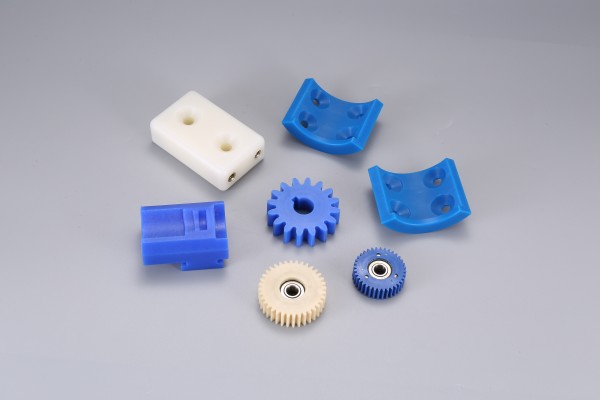
Privacy statement: Your privacy is very important to Us. Our company promises not to disclose your personal information to any external company with out your explicit permission.
Nylon machined parts are a kind of products made by processing nylon as raw material. Nylon is a Synthetic Resin that is characterized by abrasion resistance, corrosion resistance, easy dyeing, and high temperature resistance, and is widely used in the manufacture of various plastic products.
Types of Nylon Processed Parts
There are many types of nylon processed parts, which can be categorized as follows according to different ways:
Classification by application: including nylon film, nylon fiber, nylon tube, nylon gear, nylon seals, etc.
Classified by shape: including round parts, square parts, shaped parts, and so on.
Classified by processing method: including injection molded parts, extruded parts, calendered parts, etc.

Manufacturing methods of nylon processing parts
Injection molding: Nylon particles are heated and melted, and then injected into the mold for cooling and molding. This method is suitable for producing parts with complex shape and low precision requirements.
Extrusion molding: Nylon particles are heated and melted, and then extruded through an extruder. This method is suitable for the production of parts with simple shapes and large lengths.
Calendering: After heating and softening the nylon film, it is calendered into a film of the required thickness by a calender. This method is suitable for the production of film products.
Blow molding: Nylon particles are heated and melted and then injected into the mold for blow molding. This method is suitable for producing parts with complex shapes and high precision requirements.
Application areas of nylon processed parts
Mechanical Manufacturing: Nylon machined parts are widely used in mechanical manufacturing, such as the manufacture of gears, bearings, seals and so on.
Automobile manufacturing industry: nylon machined parts are widely used in automobile manufacturing industry, such as manufacturing automobile interior, automobile parts and so on.
Electronic industry: nylon machined parts are widely used in electronic industry, such as manufacturing electronic components, circuit boards, etc.
Light industry: nylon processing parts are widely used in light industry, such as the manufacture of plastic bags, plastic bottles and so on.
In short, nylon processing parts in various fields have a wide range of applications, the manufacturing method is also different due to different uses. Understanding the manufacturing methods and application areas of different types of nylon processing parts helps us to better understand and use this material products.

November 17, 2024
November 16, 2024
August 27, 2021
August 26, 2021
PEEK ball is a special type of ball made of polyether ether ketone (PEEK), which has excellent chemical stability, abrasion resistance, and high temperature resistance.PEEK ball is widely used in...
PVDF Application Areas Different models of PVDF products are suitable for different application scenarios. According to application fields, PVDF can be divided into conventional grade products and...
Application Performance Advantages of MC nylon MC nylon is a new type of engineering plastics, due to its outstanding comprehensive performance, so that its status in engineering plastics is rapidly...
Types of nylon: 1. Nylon - 6 (PA6) Nylon -6, also known as polyamide -6, that is, polycaprolactam. Translucent or opaque opalescent resin. 2. Nylon - 66 (PA66) Nylon-66, also known as polyamide-66,...
Email to this supplier
November 17, 2024
November 16, 2024
August 27, 2021
August 26, 2021

Privacy statement: Your privacy is very important to Us. Our company promises not to disclose your personal information to any external company with out your explicit permission.

Fill in more information so that we can get in touch with you faster
Privacy statement: Your privacy is very important to Us. Our company promises not to disclose your personal information to any external company with out your explicit permission.